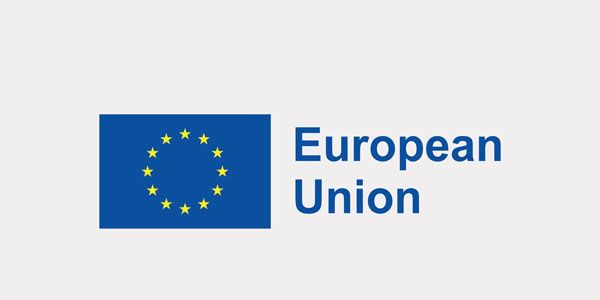Over the past 21 months, the European Union (EU) has maintained its crucial backing of DanChurchAid and Norwegian Church Aid (DCA‑NCA) in the regions of Mykolaiv and Kherson. While people in frontline communities continue to live under shelling, with displacement, and the omnipresent danger of unexploded ordnance, the EU-funded initiatives have enabled demining operations, legal assistance, and psychosocial support that are steadily transforming lives.
Video: 21 months of EU support in Mykolaiv
“The war has changed us all”
One of the more than 1,200 people – primarily evacuated from frontline communities – who have been supported to recover and rebuild their life during the 21 months of the EU funded project is 37-year-old Kateryna.
Last winter, she was aboard a Kherson-bound bus when an artillery shell struck the vehicle, resulting in extensive injuries. Since then, she has endured over 40 surgeries and a long rehabilitation process. Living now in Mykolaiv with her husband and young daughter, her family was unsure how to navigate the support systems. She has now settled in with her family in Mykolaiv with support from DCA‑NCA and their partner, Right to Protection Charitable Fund. Her daughter, eight-year-old Sonia, is still struggling with her trauma.
“Sonia is seeing a psychologist, but it’s hard to heal the wounds she has on her soul. Children get more worried than adults, but the war has changed us all,” says Kateryna.
Kateryna received help reconstructing vital documents, applying for war-victim status, and obtaining financial aid, including an exercise bike crucial for her physical recovery.
“I didn’t know how many documents I needed to get the support I needed. I didn’t know Mykolaiv that well, and I didn’t know how to apply for the correct status to get benefits and compensation, which allows my family to rebuild our lives,” says Kateryna.
Humanitarian Mine Action in Mykolaiv
Demining teams funded by the EU and deployed through DCA‑NCA have achieved significant improvements of the safety for the population in Mykolaiv. These operations are part of a broader mine‑action strategy designed to survey contaminated lands, conduct explosive-ordnance risk education, and mobilize legal and social support.











The project is aimed not only at preventing injuries and deaths following explosive incidents, but also helping people after disaster has struck.
Seventy‑three‑year‑old Oleksandr, grievously injured by an artillery strike while returning to Kherson, exemplifies the cost of Ukraine’s ongoing hostilities. With the help of legal partners, he secured “war victim” recognition—unlocking access to prosthetics and a pension increase from 4,900 to 12,300 UAH per month. Now settled in Mykolaiv, he is adjusting to life with a prosthetic leg and gradually finding his stride again outside his home.
Visits to Evacuated Valentya helps her recover
For many of the people, who are being support by the project, it is not just the support to get a higher income or humanitarian support that is vital. The visits themselves play a critical role in recovering for people, who have evacuated from their home and their social life.
89-year-old Valentyna, lived for months on the frontline, and after evacuating she faced isolation at the shelter, where she was now living . She couldn’t reach her family without a cellphone, and residents in her room would keep coming and going.

“Every day, I sit here alone. Both my son and daughter have passed away, and the rest of my family is either abroad or far away.”
Staff from Right to Protection helped her obtain essential documents like her tax identification number, a new pension certificate, a bank account, and a SIM card, which allows her to stay in contact with her family abroad. This support is a lifeline, enabling her to access her pension and even seek medical assistance for her injuries.
Along with the conversations with Right to Protection case managers, the calls help her combat loneliness at the shelter, where she lives.
While minefields and mental scars remain, and the war is far from over, the impact of the interventions over the past 21 months of EU support are clear: safer areas for a civilian population, vital support in recovering after living on the frontlines for families and individuals alike, and restoring a sense of normalcy in life for the people, who have lived with war for over three years.
EU support for DCA-NCA in Mykolaiv
The European Union has supported DCA-NCA in with funds to reach Ukrainians in vulnerable situations in the Mykolaiv region.
DCA-NCA has identified and surveyed hazardous areas, mapped protection needs and risks, conducted tailored explosive ordnance risk education (EORE), conducted clearance of contaminated areas, and identified cases for legal aid, and social support services.
The target group for the project includes war-affected civilians in the Mykolaiv region, specifically those with damaged homes, former hostages, torture victims, and people living with injuries from the war. The project also extends assistance through DCA-NCA’s Ukrainian partner organisation Right to Protection to the families of deceased or missing individuals, as well as supporting the elderly, internally displaced persons, and first-line responders.






